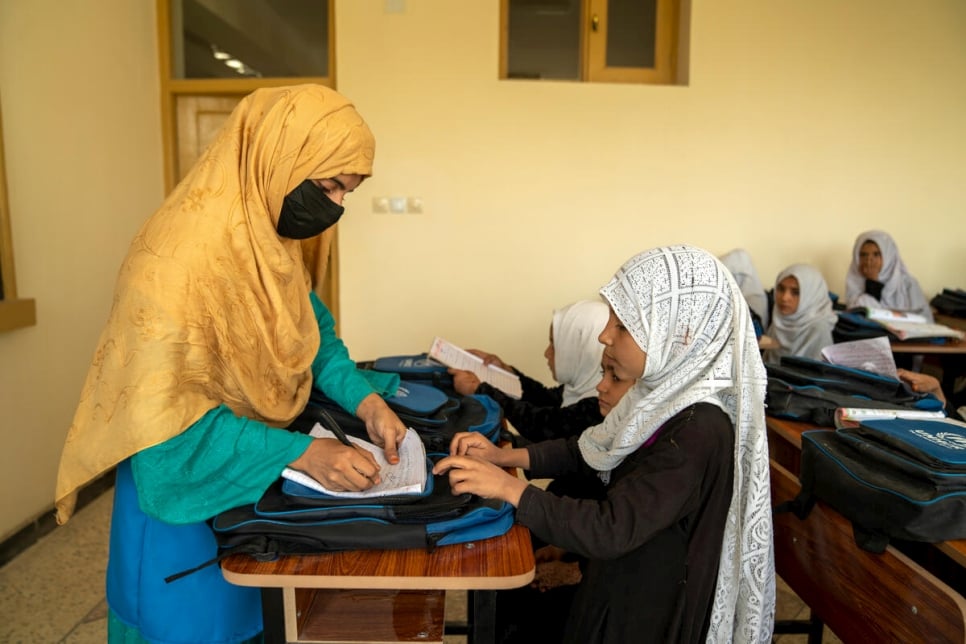 A female Afghan volunteer engaged in a UNHCR-supported education project in Jalalabad, Afghanistan. © UNHCR/Oxygen Film Studio
A female Afghan volunteer engaged in a UNHCR-supported education project in Jalalabad, Afghanistan. © UNHCR/Oxygen Film Studio
The UN High Commissioner for Refugees, Filippo Grandi, joins the heads of other humanitarian organizations in calling on Afghanistan's de facto authorities to reverse its directive that restricts women from working with non-governmental organizations.
"Preventing women from humanitarian work is a grave denial of their humanity. It will only result in further suffering and hardship for all Afghans, especially women and children. This ban must be lifted," said Grandi.
More than 500 women staff work with UNHCR's 19 NGO partners in Afghanistan, serving nearly a million women and girls. The most recent restrictions will force the UN Refugee Agency to temporarily stop critical activities in support of Afghan people, especially women and children.
In addition to providing critical humanitarian aid, women staff are at the forefront of efforts to find solutions for Afghans affected by four decades of conflict and persecution, including millions of refugees and internally displaced people. Some 3.4 million people are currently displaced inside Afghanistan and another 2.9 million are displaced outside the country as refugees.
"Severely limiting the rights of Afghan women and their involvement in humanitarian and development efforts risks pushing more families to flee across the borders as refugees. It also diminishes prospects for long-term solutions for those already displaced, such as making the decision to voluntarily return home to rebuild their lives," said Grandi.
Across Afghanistan's 34 provinces, women have been actively leading and engaging in the humanitarian response, enabling UNHCR to reach over six million Afghans since August 2021. With so many other restrictions on women, this new decree will have a devastating impact on Afghanistan's population, comprising an estimated 40 million people.






